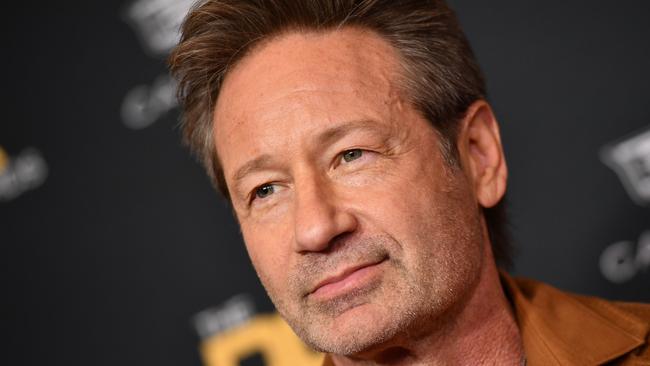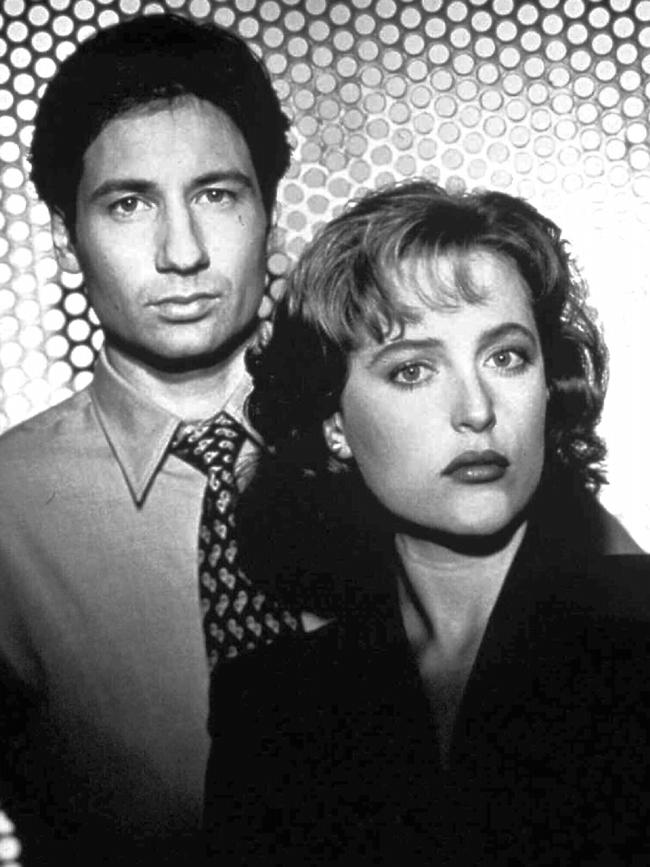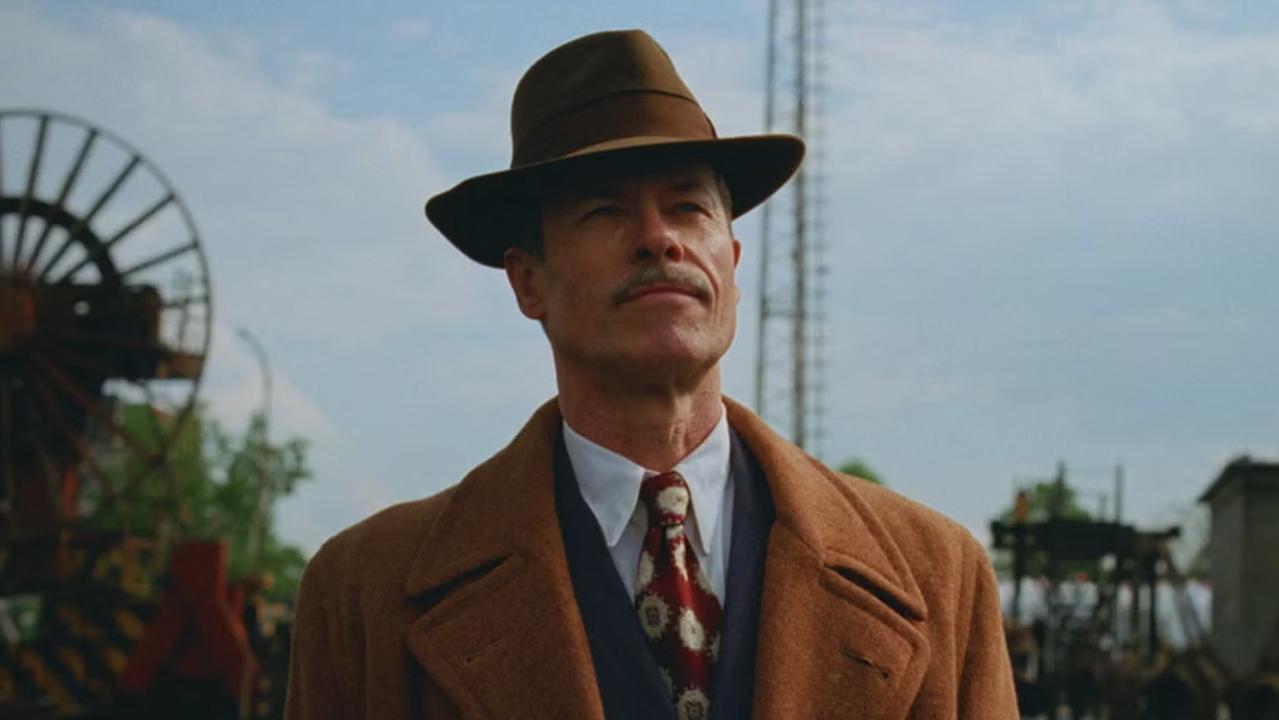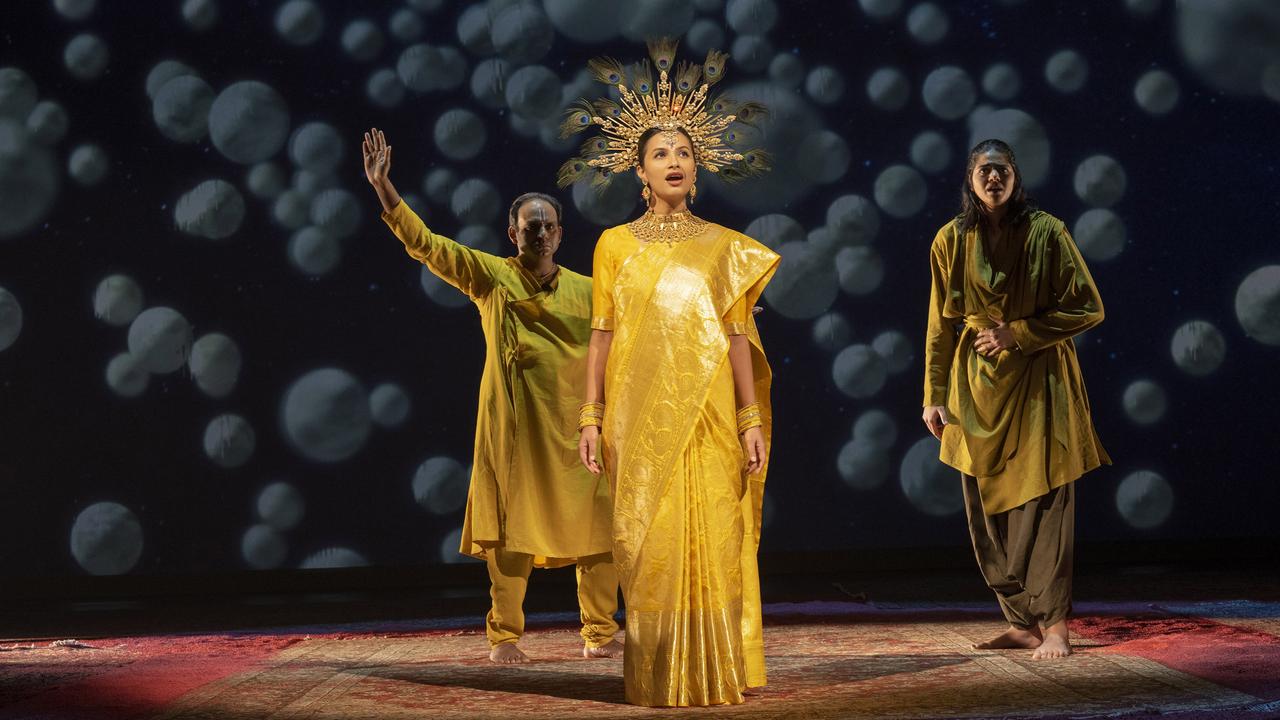The X Files conspiracy plots used to fringe, but now they’re not
As Fox Mulder in the The X Files, David Duchovny peddled alien theories. Now that paranoia is everywhere, according to the actor-singer.

In hindsight, it wasn’t a great idea to kick off an interview with David Duchovny by suggesting he was a musical dilettante.
Duchovny, a New Yorker living in Lost Angeles, is less known for music, although he’s been making rather decent folk rock for a decade – songwriting, playing guitar and singing in a honeyed drawl. His 2015 song, Hell or Highwater, has been streamed more than a million times, while his Layin’ on the Tracks, from 2020, has pointed lyrics about a certain politician ("It’s a killing joke that no one laughs at / A stupid orange man in a cheap red hat”).
He has released three albums, with a fourth due next year, and this month plays a festival in England and is booked to perform at London’s 2000-seat Shepherds Bush Empire.
You’re most likely to know Duchovny, of course, as Fox Mulder, the conspiracy theory-guzzling FBI agent in The X Files, one of the biggest shows of the ’90s, watched at its peak by 30 million in America alone. Perhaps you saw him as womanising writer Hank Moody in Californication or 1960s detective Sam Hodiak in Aquarius. You may even have read some of his five books.
So does the 63-year-old feel he should no longer be seen as just a musical dabbler?
“That’s part of a lazy person’s perception,” Duchovny says, bristling slightly. “It’s a lens through which people want to see me. I think music is an innocent art form – you listen to it and you have a response. To bring any kind of baggage to bear on it in the beginning seems to me to be dishonest, but that’s the way things go.”
YouTube clips of recent shows suggest people were having a lovely time, I say. This doesn’t have the soothing effect intended.
YouTube footage lingers “because of the horror of the cell phone”, Duchovny says. “It’s a pet peeve of mine.” Is he tempted to ban them at his shows, as artists from Prince to Bob Dylan have? “I don’t know that I can enforce that view on anybody.”
For Duchovny, it’s as much about phones limiting his performance as it is about the audience not living in the moment. “To do something unique or for the first time, to reach for a note or play a different melody – all these are chances you might take if you weren’t inhibited by the fact that somebody is (recording) it,” he says. “You’ve got to be able to fail and the ubiquity of cell phones makes failure scarier than it needs to be.”
Failure is the key to another of his jobs: podcasting. In his series, Fail Better, he adroitly interviews guests including Bette Midler, Ben Stiller and Sean Penn about their failures. “I feel like I’ve been failing my entire life,” Duchovny said on launching it in May. That may sound strange from a man with English degrees from Princeton and Yale, who has won a Golden Globe for The X Files and another for Californication.
Is he familiar with Elizabeth Day, the British journalist who has hosted a successful podcast called How to Fail since 2018?
When Duchovny announced Fail Better, Day tweeted: “I might invite David Duchovny on @howtofail to discuss his failure to be original.”
“This is the first I’ve heard of it,” he says. “If she wants to be rigorous in her thinking, she would investigate what my approach to failure is. I don’t know what her approach to it is. My sense, since failure is universal, is that there’s room out there for more than one discussion.”
This is a rather po-faced response to what seemed like a playful comment from Day, and surprising because Duchovny has a wicked sense of humour. He can also afford to be more magnanimous, given that his podcast is at No.12 in the chart and hers at 54.
Gillian Anderson, his X Files co-star, certainly likes his podcast, writing last week on Instagram that she had listened to all of the episodes and found them “intimate and vulnerable … very smart questions, although I wouldn’t expect anything else from you (David)”.
“It’s very sweet,” Duchovny says. “I will email her and thank her. I’m sure somebody running my social media is … I don’t really like to be on social media.” Later that day his Instagram account replies to Anderson’s post: “Thank you for listening, you have an open invite (to appear on his podcast)!”
That encounter would be worth hearing because his relationship with Anderson is fascinating. Despite their chemistry in The X Files there were rumours of friction – although they looked to be getting on swimmingly when they appeared on Jimmy Kimmel’s talk show in 2016 to publicise the return of the show for two more seasons.

When asked by Kimmel about frostiness between her and Duchovny in the ’90s, Anderson collapsed into giggles, laid her head in Duchovny’s lap and put any reserve down to the dampness of Vancouver, where the series was shot. Her hair kept going frizzy, she explained, and “for every single take we’d have to stand there and blow-dry my hair again”.
“And I got pissed at that?” Duchovny asked.
“Well, I think it added to the tension,” Anderson said.
“It kinda makes me sound like an asshole,” he responded.
Anderson had nothing to do with him leaving The X Files in 2002, he says now. “That was just me wanting to have a family, but also to try other things. It had kind of taken up my life. There was no animosity with the show and the people I worked with.
“I am proud of the show – it was culturally central in a way that is very hard to do these days in a fragmented landscape. There’s so many lightning-strike aspects to it that I can’t help but think of it as some kind of a miracle.”
The X Files gave conspiracy theories a kind of nobility – “the truth is out there”, as its tagline ran. Now they are more widespread and pernicious. “Mulder’s way of looking at the world was through conspiracy and that was the fringe at that point,” Duchovny says.
“It doesn’t seem to be so fringe any more. It’s really the world that (The X Files creator) Chris Carter foresaw happening almost 30 years ago. He’s almost clairvoyant.”
Is Duchovny more evidence-based than Mulder? “Not at all. I’m an artist – I am associative-based and I see poetry as science and science as poetry.” So are there some conspiracy theories he buys into? “No, I’m talking about art. I think conspiracies are mostly just lazy thinking.”
One failure that has shaped Duchovny is that of his marriage to actor Tea Leoni, who starred in Bad Boys and Deep Impact. They married in 1997 and have a daughter, West, 25, and a son, Kyd, 22, but divorced in 2014.
“That darkness does deepen you. It makes you more empathetic and humble,” Duchovny says. One of the themes of his podcast is “the difference between humiliating and humbling. Often we focus on humiliation in our culture. I don’t see any positives coming from humiliation, but I see a lot of them coming from humility”.
One wonders if the reference to humiliation has something to do with Duchovny checking into rehab for sex addiction in 2008. Could him playing the bed-hopping Hank in Californication be a case of art imitating life? “People never tire of trying to figure that out,” he says with a sigh. “But to me, that’s not what acting is about. I don’t look for things that are mirroring my life in any way.”
Well, there are parallels in Reverse the Curse, the 2023 film Duchovny directed, starred in and adapted from his book, Bucky F..king Dent. He plays a would-be novelist who has “sacrificed his artistic dream to put food on the table”. His father, a publicist, did the same, publishing his debut at 75, the year before he died.
The film boasts some funny scenes, including one where Marty and his son have a farting competition in a motel room that ends up smelling like “an aquarium that fed a sock”.
That may have come from a line in Aquarius, where someone says something similar about a police station. “I might have ripped it off, I’m not sure,” Duchovny says.” You can ask Elizabeth Day about that.”
THE TIMES




